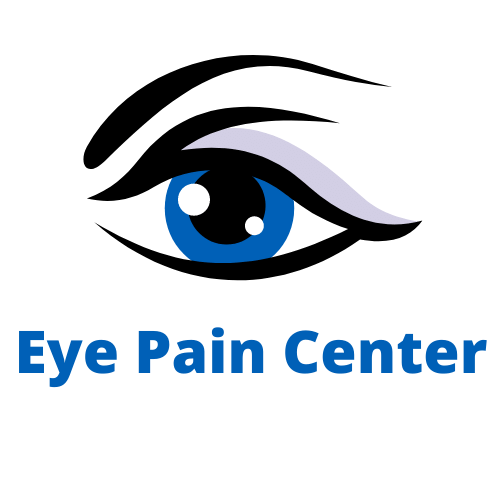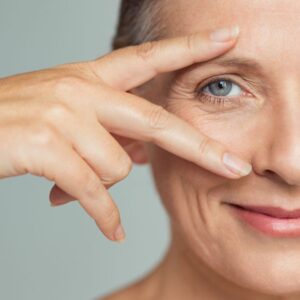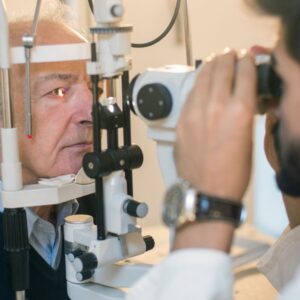Protecting your eyesight is an essential step in preserving your good health. Wearing protective eyewear when engaging in construction, welding, and certain sports can help prevent eye injuries and preserve vision. Additionally, regularly wearing sunglasses with UV-blocking capabilities can provide protection from harmful ultraviolet rays.
Find out 10 easy tips to protect your eyesight naturally without resorting to medication.
Get Regular Eye Exams
Getting regular eye exams is an essential step in protecting your eyesight. An eye exam can detect early signs of eye problems and diseases, such as cataracts, glaucoma, and age-related macular degeneration, which can be treated if caught early. During an eye exam, an eye doctor will check your vision, the health of your eyes, and the muscles that control your eyes. They may also use special tests, such as visual field tests, to check for vision problems.
Here are some tips for getting regular eye exams:
- Schedule an appointment with an eye doctor at least once a year or more often if you have a history of eye problems or if your vision has changed.
- Let your eye doctor know if you have any symptoms, such as trouble seeing at night, double vision, or frequent headaches.
- Bring a list of medications you are currently taking and any allergies you may have.
- Inform your eye doctor if you have a family history of eye diseases, as it may increase your risk of developing certain conditions.
- During the exam, follow the eye doctor’s instructions and ask any questions you may have about your vision or eye health.
By getting regular eye exams, you can take steps to protect your eyesight and maintain good vision for many years to come.
Wear Protective Eyewear
Wearing protective eyewear is an effective way to protect your eyes from potential hazards in the workplace or during certain activities. Here are some tips for protecting your eyes with protective eyewear:
- Choose the right type of eyewear for the task at hand. For example, safety goggles provide full coverage. They are best for tasks involving chemicals or flying debris, while safety glasses provide less coverage but are better for tasks not involving flying debris.
- Make sure the eyewear fits appropriately and is comfortable to wear. Eyewear that is too tight or loose can cause discomfort and provide inadequate protection.
- Look for eyewear that meets ANSI (American National Standards Institute) safety standards. This means that the eyewear has been tested and meets specific safety requirements.
- Consider additional features such as scratch-resistant lenses, UV protection, and polarized lenses if appropriate for the task or environment.
- Keep your eyewear clean and in good condition. Clean the lenses with a soft cloth and store the eyewear in a protective case when not in use.
- Wear protective eyewear during all activities that may pose a risk to your eyes, such as playing sports, working with power tools, or using chemicals.
Wearing protective eyewear can help protect your eyes from potential hazards and maintain good vision for many years.
Quit Smoking
Quitting smoking is an essential step in protecting your eyesight. Smoking is a major risk factor for several eye diseases, including cataracts, age-related macular degeneration (AMD), and uveitis (an inflammation of the eye’s middle layer).
Eat A Healthy Diet
Eating a healthy diet can help protect your eyesight by providing your eyes with the nutrients they need to function properly. Here are some tips for eating a diet that supports eye health:
- Include foods rich in vitamins A, C, and E, as well as zinc and omega-3 fatty acids, in your diet. These nutrients are known to be important for eye health. Foods that are high in these nutrients include leafy greens (spinach, kale, collard greens), fish (salmon, tuna, mackerel), nuts and seeds (almonds, walnuts, flaxseed), eggs, and fruits (oranges, strawberries, kiwi)
- Consume a variety of fruits and vegetables to ensure you are getting a variety of beneficial nutrients.
- Limit or avoid foods high in saturated fats, trans fats, and cholesterol. These foods can increase your risk of developing chronic conditions such as high blood pressure, which can damage the blood vessels in your eyes.
- Stay hydrated by drinking plenty of water and limiting your intake of sugary drinks.
- Maintain a healthy weight through a balanced diet and regular physical activity. Being overweight or obese can increase your risk of developing diabetes and other conditions affecting your eyes.
Eating a healthy diet can help protect your eyes from age-related diseases and maintain good vision for many years.
Reduce Screen Time
Reducing screen time and taking regular breaks are essential in protecting your eyesight, particularly if you spend a lot of time using computers, phones, or other digital devices. Here are some tips for reducing screen time and taking breaks:
- Set a timer or reminder to take a break every 20-30 minutes. During breaks, look away from the screen and focus on something else, like a distant object, for at least 20 seconds.
- Try the 20-20-20 rule: Every 20 minutes, take 20 seconds to look at something at least 20 feet away from you. This can help reduce fatigue and dryness in your eyes caused by prolonged stares at a computer screen or phone.
- Adjust your screen settings to reduce glare and brightness.
- Use the zoom feature on your device to make text larger, reducing the need to lean in closer to the screen.
- Use a blue light filter to reduce the amount of blue light emitted from your screen.
- Keep your screen at a comfortable distance, and ensure the top of your screen is at or below eye level.
- Try to limit screen time before bedtime, as the blue light emitted from screens can interfere with sleep.
By reducing screen time and taking regular breaks, you can help prevent eye strain, dry eyes, and other symptoms associated with prolonged screen use and help protect your eyesight.
Exercise
Exercising regularly and staying physically active can help protect your eyesight by improving blood flow to the eyes and reducing the risk of developing certain eye diseases. Here are some tips for incorporating exercise and physical activity into your routine:
- Aim for at least 30 minutes of moderate-intensity aerobic activity on most days of the week. This can include brisk walking, cycling, swimming, or dancing.
- Incorporate muscle-strengthening activities at least two days a week, such as a weightlifting, resistance band exercises, or bodyweight exercises.
- Try to include activities that work on balance and coordination, such as yoga, tai chi, or Pilates.
- Find activities you enjoy that are convenient, such as taking the stairs instead of the elevator, walking or biking to work, or taking a lunchtime walk.
- Incorporate physical activity into your daily routine, such as taking a walk during your lunch break or riding a bike after work.
- Make sure to warm up and cool down correctly before and after your exercise session.
Regular physical activity can help to lower the risk of developing several eye diseases, including diabetic retinopathy, age-related macular degeneration, and glaucoma, and also improve overall blood circulation in the body, which can help to protect the eyes.
Get Enough Sleep
Getting enough sleep is an essential step in protecting your eyesight. Sleep plays an essential role in maintaining overall health and well-being, and a lack of sleep can lead to several eye-related problems.
Some tips for getting enough sleep to protect your eyes:
- Doing your best to go to bed and wake up at approximately the same time each day is essential for getting adequate sleep.
- Create a relaxing bedtime routine. This can include reading a book, taking a warm bath, or listening to soothing music.
- Ensure that your sleeping environment is both comfortable and dark. Invest in heavy curtains or an eye mask to block out light, and keep the temperature at a moderate level for optimal rest.
- The artificial blue light from electronic devices such as phones, computers, and televisions can disrupt melatonin production, making it harder for you to drift into a restful slumber. It is recommended to stay away from these devices at least one hour before bedtime. Making sure to avoid screens during the evening is one way to help the body wind down for sleep.
- Avoid caffeine and heavy meals close to bedtime.
- Try to find ways to relax and reduce stress before bedtime. This can include things like meditation, yoga, or deep breathing exercises.
- If you have trouble falling asleep, consider talking to your doctor about possible underlying conditions or for guidance on sleep hygiene.
Getting enough sleep can help protect your eyes from dry eyes, irritation, and fatigue and also help improve your overall health and well-being.
Wear Sunglasses
Wearing sunglasses is essential in protecting your eyesight from the Sunglasses are important for preserving your eye health by blocking out UV radiation. Wearing sunglasses protects from the sun’s ultraviolet rays and can reduce the risk of damage to your eyes, including cataracts and macular degeneration.
Here are some tips for protecting your eyes with sunglasses:
- Look for sunglasses that block at least 99% of UVA and UVB rays.
- Choose sunglasses that fit well and are comfortable to wear. Wraparound sunglasses can provide extra protection by blocking UV rays from entering the eyes from the side.
- Consider polarized lenses, which can reduce glare and make it easier to see in bright light.
- Wear sunglasses not only when you’re in the sun but also when driving, as the glare from the sun can be dangerous while on the road.
- Keep in mind that the darkest lenses are not always the best choice. Darker lenses may provide more visual comfort in bright sunlight but do not necessarily provide more UV protection.
- Consider getting transition lenses that darken when exposed to UV rays and provide protection and comfort in different lighting conditions.
By wearing sunglasses, you can help protect your eyes from harmful UV rays and reduce your risk of developing certain eye diseases.
Practice good eye hygiene
Regular blood sugar & blood pressure check
Regularly checking your blood sugar and blood pressure is important in protecting your eyesight.
High blood sugar and blood pressure levels can drastically increase the risk of eye diseases such as diabetic retinopathy and hypertension retinopathy. These conditions are caused by damage to the blood vessels in the eye’s retina and, if left untreated, can lead to eventual blindness if not properly managed.
Here are some tips for checking your blood sugar and blood pressure to protect your eyes:
- Have your blood sugar and blood pressure checked regularly by your doctor, especially if you have diabetes or a family history of high blood pressure or diabetes.
- Keep track of your blood pressure and blood sugar levels, and share the results with your doctor.
- Proper management of diabetes requires regular monitoring of blood sugar levels coupled with a doctor-prescribed medication regimen. Those living with diabetes must keep up with both to prevent complications and maintain good health.
- If you have high blood pressure, work with your doctor to develop a plan to manage it, including lifestyle changes, medication, and regular monitoring.
- Living a healthy lifestyle is essential to optimize your blood sugar and pressure. Eating a balanced diet, exercising regularly, and refraining from smoking.
Regularly checking your blood sugar and blood pressure and managing any related conditions can help protect your eyes from the potential damage caused by these conditions and maintain good vision for many years.
Keep Your Eyes Well Moisturized
Keeping your eyes well moisturized is important for protecting your eyesight. This can be done by:
- Use artificial tears or eye drops to lubricate the eyes, especially if you experience dry eyes or work in front of a computer screen.
- Applying a warm compress to your eyes to help relieve dryness or irritation
- Drinking plenty of water to stay hydrated
- A humidifier adds moisture to the air in your home or office, especially during dry or cold weather.
- Avoiding exposure to wind or dry air for long periods
- Avoiding using contact lenses for long hours






